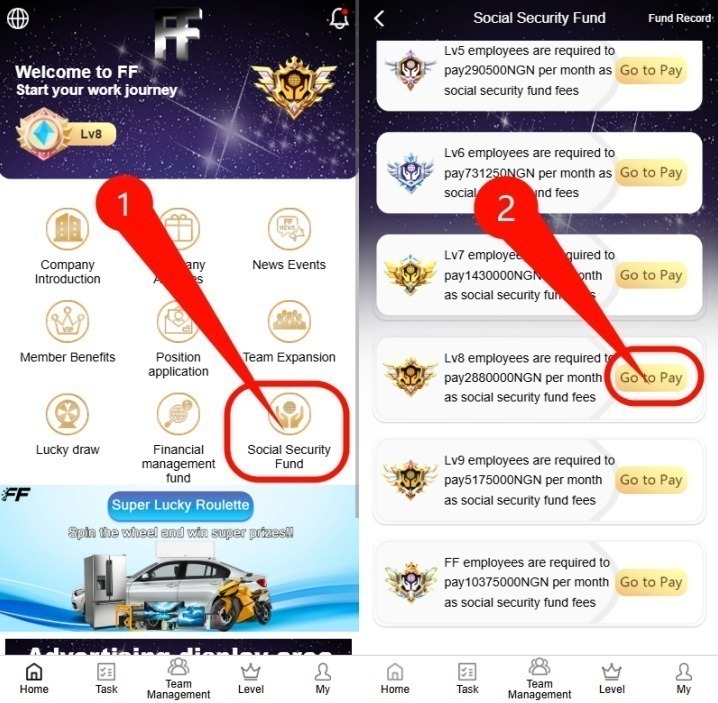
The platform known as FF (ffnga555999.com) has officially crashed.
Many Nigerians who invested in it, hoping to turn ₦3,000 into ₦178,000, are now facing the harsh reality of yet another Ponzi-style collapse.
This article is not written out of bitterness.
It is a warning to others and a breakdown of how this system fell apart, so people can avoid similar traps in the future.
What Was FF, Really?
FF positioned itself as a digital task-based investment opportunity.
It claimed users could earn high daily commissions by completing simple tasks and recharging their accounts.
The platform gained popularity through WhatsApp groups, flashy dashboards, and the promise of turning small money into massive returns.
However, there was no legitimate business model backing these returns.
There was no known product, no proof of services rendered, and no external source of income.
Everything depended on new users joining and investing.
Why It Was Always a Scam
Here are the red flags that clearly showed FF was never sustainable:
Unrealistic Returns
The platform promised over 5,000% return on investment, such as turning ₦3,000 into ₦178,000.
In real finance, even crypto and stocks do not offer this within such a short period.
These kinds of returns are a major sign of fraud.
No Corporate Identity
FF operated without a CAC registration in Nigeria, had no real office location, and did not disclose its management team.
The domain name ffnga555999.com was only registered in March 2025, with private WHOIS details to hide ownership.
Hidden from Search Engines
The entire website was built using JavaScript in a way that prevented Google from indexing any useful content.
This made it invisible online unless you were referred directly.
Legitimate businesses never hide from Google.
Fake Leadership and Communication
The so-called assistant managers or foreign reps, like “Elienor Lebel,” used fake profile pictures and spoke like average WhatsApp users.
There was no professional branding, and all communication was done via group messages, with zero accountability.
Censorship and Threats
When users raised concerns about failed withdrawals, they were removed from groups and accused of spreading false information.
Some were even threatened with fake legal action or “termination” from a job that never existed.
Timeline of the Collapse
- Early June 2025 – First withdrawal complaints began circulating
- Mid-June – Users were being removed from WhatsApp groups for speaking up
- Late June – Account access began failing for select users who questioned leadership
- By June 22 – Full platform crash confirmed.
The site became inaccessible or fake pages loaded with no working functions.
Group chats were either deleted or muted, and most admins disappeared
Lessons to Learn
Nigerians continue to fall for schemes like FF because of desperation, peer pressure, and the illusion of fast money.
But we must start asking harder questions:
- Where does the money really come from?
- Who is running the business?
- Is it sustainable without referrals?
- Can I find it on Google or verify it on CAC?
Any platform that avoids those questions is likely a Ponzi scheme.
Final Thoughts
I write this not just as someone who observed the platform but as someone who was blocked and threatened simply for speaking the truth.
I understand the pain of losing money and the fear that comes with asking questions too early.
But I also know that silence only helps scammers win.
If you invested in FF, take this as a wake-up call.
If you escaped, use it as a reason to warn others.
And if you’re building something real, focus on platforms that operate with transparency, legality, and long-term structure.
Let’s stop normalizing fraud disguised as opportunity.
The real money is in real work.

